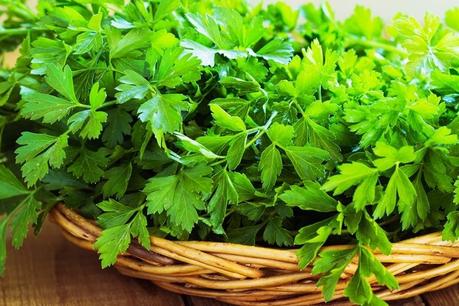When we talk about metabolism, it is balanced diet, nutritious food and better immunity that comes first to our mind. Probably, you have heard the word "METABOLISM" many times, but have you ever wondered what is metabolism and why is it so important for your health?
Actually, many activities in the body are linked to metabolism to keep you fit and healthy, but due to poor lifestyle the level of metabolism is disturbed. Now you must be thinking how, then we're going to explain this in detail in this article.
In this article, you will also learn what are the symptoms of slow metabolism. Also, answers to how to fix metabolism will also be found in this article.
What is Metabolism?
The chemical reactions taking place in your body is called "METABOLISM". These chemical reactions work to convert your food into energy. Actually, metabolism is responsible for almost every activity in the human body, such as -
- Blood circulation
- Control body temperature
- To breathe
- Shrink muscles
- Digestion of food and nutrients
- Expelling toxins from the body through urine and feces
- Brain and nerves functioning smoothly
You need a limited amount of energy to do your daily tasks. When you overeat for this limited energy, it starts accumulating in the form of fat and causes obesity. The amount of energy you need in a day is called the metabolic rate of the body. It can be divided into three parts, which are as follows -
Basal Metabolic Rate: This is the energy that the body uses when you rest. This energy helps all your systems to function properly. It is about 50 to 80 percent of your entire energy.
Energy Used During Physical Activity: If you're an average person doing 30 to 45 minutes of physical activity at a time, then about 20 percent of your energy will be used during this time.
Thermic Effect of Food: About 5 to 10 percent of your entire energy is used in the process of eating food to digestion.
Metabolism rate in everyone's body depends on various factors, which are as follows -
- The amount of fat in the body
- Body shape
- Dieting or starving may reduce metabolic rate
- Metabolism rate may decrease with increasing age
- Deficiency of any nutrient
- This rate also depends on physical activity
- Thyroid dysfunction caused by hormonal imbalance
- Metabolism rates are higher in men that women
- Certain types of medicines, caffeine and the amount of nicotine in the body
- Metabolism rates can also be genetic
- During illness, the body needs more energy to make new tissues and fight diseases
- After the age of 30, cells from muscles, liver, kidneys and other organs begin to shrink. This may also reduce metabolic rate.
How to Increase Metabolism Naturally?
Above you learned how important metabolism is for your body. If this does not go well, it can affect your body. Now below, we are telling you 30 natural ways to boost metabolism , which can prove to be easy and effective.

Green tea contains an element called epigallocatechin-3-gallate, which helps to boost low metabolism. This may reduce the risk of heart disease and diabetes. In addition, green tea also affects metabolism and may also improve glucose metabolism, which may prove beneficial for the patients with diabetes. At the same time, green tea has anti-obesity properties, which can also protect against the problem of obesity.
How To Use:
- You can drink green tea twice a day in the morning and evening.
According to a research, nuts can help reduce the causes of metabolic disease, such as metabolic syndrome and obesity. Metabolic syndrome increases the risk of diseases such as heart disease, type-2 diabetes and stroke, which can lower your metabolic rate. At the moment, there has been little research on which properties can be beneficial.
How To Use:
- In the morning, eat four to six soaked almonds for breakfast. If you wish, you can consume it by adding 15-20 in-shell pistachios (unsalted) or some walnuts etc. with curd.
3. Fresh Fruits:
According to a scientific study, there are many benefits of including fresh fruits in the diet to boost metabolism. Some fruits have anti-obese properties, which help to increase metabolism by helping reduce obesity.
Fruits are rich in fiber and water, which makes them easy to digest. Most fruits are low in fat and calorie content, but they easily fill the stomach. Sugar is found in some fruits, which may increase the risk of developing diabetes. Therefore, if you have diabetes, please consult your doctor once before eating fruits.
How To Use:
To speed up metabolism, you can include -
- A medium-sized apple (72 calories)
- A medium-sized banana (105 calories)
- One cup blueberries (83 calories)
- One cup grapes (100 calories)
If you want, you can also consume these fruits by making juice, but doctors consider eating fruit instead of juice is more beneficial. Keep in mind that you should not add sugar to them while eating them.
4. Protein-Rich Foods:
According to a scientific research, reducing the amount of fat in the diet and increasing the amount of protein can help control weight. For this, regular exercising and consuming protein rich foods may be beneficial.
Eating a protein-rich diet doesn't make you hungry for longer and you eat less. This keeps your weight under control and improves the level of metabolism. The largest source of energy from food is protein.
How To Use:
- Protein sources such as mushrooms, tofu, legumes, fish, soy, beans, eggs, milk, yogurt and cheese etc. can be consumed in food to increase metabolism.
5. Full-Fat Yogurt:
Yogurt contains lactic acid bacteria, which are good for the intestine and aid in better digestion. They help control your appetite and also balance blood sugar. So you can take help of curd to control body weight, balance energy and deal with type-2 diabetes.
How To Use:
- Include a bowl of yogurt in the diet to increase metabolism. You can consume it twice a day.
- If you want, you can also consume Greek yogurt from the market. Consuming Greek yogurt in breakfast can be more beneficial.

If you also think what to do to increase low metabolism levels, then leave tea and start drinking coffee. It increases fat oxidation by increasing your body's metabolism rate. This means that coffee combines with oxygen to convert food into energy and prevents it from being stored as fat. According to a scientific research, obesity can be reduced to some extent if obese people consume caffeinated coffee in limited amounts.
How To Use:
7. Vegetables:
There are many benefits of adding vegetables to the metabolic diet chart to increase metabolism. Vegetables contain phytochemicals and anti-obese agents, which prevent obesity-enhancing adipose tissue from growing and are helpful in increasing metabolism.
In addition to this, vegetables also protect against oxidative stress and inflammation due to adipose tissue. Also, like fruits, most vegetables also have low fat and calorie content and they easily replenish your stomach. It reduces appetite and keeps your weight under control, and you have already read above that metabolism is also better by keeping the weight balanced. So if you are wondering how to increase metabolism, then eat fresh vegetables.
How To Use:
- You can include vegetables like lettuce, capsicum, onion, cabbage, sweet potato and broccoli in your diet.
- Apart from this, you can also get a diet chart made by talking to your doctor, in which you will be told what to eat and how much to eat.
8. Dark Chocolates:
If you're looking to boost your metabolism, eat dark chocolates. According to a research, consuming 40 grams of dark chocolate daily for about 14 days can improve your metabolic rate. Its properties regulate stress hormones and can help relieve you from problems such as stress.
In addition, dark chocolate contains cocoa powder, which has anti-obese properties. Therefore, it may help reduce obesity. You can also use it in diabetes. Cocoa present in dark chocolates has antioxidant properties, which helps to increase insulin sensitivity and may be beneficial in relieving type-2 diabetes.
How To Use:
- Whenever you feel stressed or negative, eat a piece of dark chocolate.
9. Apple Vinegar:
Apple vinegar can prove beneficial in the way of accelerating metabolism. It has antioxidant properties, which relieve oxidative stress. Also, its use can save you from heart disease caused by obesity. Not only this, the consumption of apple vinegar can also help in controlling blood pressure and cholesterol.
How To Use:
- You can drink a teaspoon of apple vinegar mixed in a glass of water before eating every day.
- You can consume it two to three times a day. If you have acidity (acid reflux), consult your doctor once before using it.
10. Turmeric:
Turmeric has anti-inflammatory and antioxidant properties, which can be used as a remedy to cure metabolism. Turmeric properties can be helpful in protecting against obesity and metabolic diseases such as heart disease, stroke and type-2 diabetes etc.
How To Use:
- If you are wondering how to increase metabolism, then you can drink turmeric milk before going to bed at night.
- If you want, you can also make and drink turmeric tea and add honey to it for taste.
11. Fenugreek Seeds:
The properties of fenugreek seeds help improve metabolism by reducing fat tissue in the body and controlling digestive enzymes, antioxidants, blood sugar levels, and increasing insulin sensitivity.
They also provide relief from oxidative stress and help in controlling blood pressure. As we have told you that all these problems can reduce your metabolism rate. Therefore, the use of fenugreek seeds may be beneficial for you.
How To Use:
- To speed up metabolism, soak two spoons of fenugreek seeds in water overnight.
- Then filter the water in the morning and consume it.
- If you want, you can also use fenugreek as a spice while cooking.

Garlic intake can help reduce triglyceride, lipid and harmful cholesterol levels in the blood. Garlic has anti-inflammatory and antioxidant properties, which increase metabolism and can relieve diseases like obesity and diabetes.
How To Use:
- You can consume a bud of garlic every morning. If you want to cure metabolism, you can also eat gluten in soups and vegetables.
13. Cinnamon:
Have you ever thought that the ingredients that enhance the taste of food can also help you control weight? Yes, according to scientific research, cinnamon can help in getting relief from metabolic syndrome like heart disease, diabetes and stroke.
It contains compounds such as cinnamaldehyde, cinnamate, cinnamic acid, and eugenol, which help control blood sugar, obesity, and high blood pressure (hypertension).
How To Use:
- You can mix cinnamon powder in tea, juice, salads and soups and consume it. You can also use it while cooking.
Perhaps you aren't sure that chili gives flavor as well as health. An active substance called capsaicin is found in chilies, which can help in losing weight. In addition, chili also regulates insulin levels in the body, thereby controlling weight and protecting against diseases such as obesity, diabetes and heart diseases.
How To Use:
- You can include one or two green chilies throughout the day in the diet to increase metabolism
- Apart from this, you can use red chili powder as per your taste
- If you have stomach problems, consult your doctor once before eating chili.
15. Oolong Tea:
Oolong tea has been described as beneficial for weight loss. According to a scientific research, it helps to increase fat oxidation and metabolic rate. Organic compounds called polymerized polyphenols present in it help to improve metabolic rate, increasing energy in the body. Oolong tea is also found to have anti-stress properties, which have an effect on plasma triglyceride metabolism (plasma TG metabolism).
How To Use:
- Drink oolong tea before meals to get the maximum benefits.
Lentils are a good source of protein. This pulse is also rich in fiber, minerals and vitamins. It can help protect from various diseases like obesity, diabetes, heart disease and cancer due to its bioactive compounds.
In addition, lentils have antioxidant, anti-inflammatory, antidiabetic, anticancer, anti-obese properties, which act as a remedy to cure metabolism. Lentils contain polyphenols, which help reduce the risk of metabolic syndrome such as diabetes, obesity and heart disease. All these diseases can reduce your metabolism rate.
How To Use:
- You can include lentils in the diet to increase metabolism.

Parsley has antioxidant and anti-inflammatory properties, which help to increase metabolism. They increase energy expenditure in the body and help reduce food intake by reducing hunger. They also help in controlling blood pressure and cholesterol by controlling prostaglandin levels. Prostaglandin is a type of chemical compound that acts like a hormone in the body.
How To Use:
- You can consume it in soups, salads and smoothies or include it in your diet.
18. Olive Oil:
According to a research, 30 phenolic compounds are found in olive oil. These compounds are powerful antioxidants that protect against oxidative stress and heart disease. In addition, olive oil reduces the risk of heart disease by reducing plasma triglycerides, poor cholesterol and increases the rate of metabolism.
How To Use:
- You can use olive oil instead of normal oil to increase metabolism.
Mustard can also be beneficial when it comes to how to increase metabolism. Mustard oil contains an element called diacylglycerol, which helps to lose weight.
In addition, erucic acid found in mustard may help reduce bed cholesterol. Due to these elements, mustard can help in increasing your metabolism.
How To Use:
- You can use mustard in cooking. If you want, you can make mustard greens and eat them.
20. Iron Rich Foods:
According to a scientific study, iron deficiency in the body may reduce metabolic rate. This not only reduces your basal metabolic rate, but also reduces the energy used during physical activity. In addition, it reduces oxygen delivery to cells, causing them to not function properly.
How To Use:
Stress is also an important cause of weight gain, which reduces your metabolism. In this case, herbs can help you. They are found to have anti-inflammatory properties, which improve immunity by reducing stress, correcting glucose metabolism and increasing energy. They help in controlling blood sugar and blood pressure by reducing your stress.
How To Use:
You can use them as aromatherapy. For this, put a few drops of essential oils of these herbs in the diffuser and keep it in the room. These following herbs can be useful for you such as -
22. Omega-3 Fatty Acids:
Omega-3 polyunsaturated fatty acids are known to have anti-inflammatory properties and hypertriglyceridemic properties which help to prevent a type of fat from growing in the blood. They may not only beneficial in losing weight, but may also help prevent weight gain problems.
Foods that contain a good amount of omega-3-fatty acids may help improve low metabolic rate. So do include omega-3 fatty acids in your metabolic diet chart.
How To Use:
- For this, you can consume walnuts, fish oil, fish (with skin), flax seeds, soybeans, chia seeds, pumpkin seeds, spinach and egg yolk.
23. Drink Plenty of Water:

Water may help you lose weight. According to a science-based research, 500 ml of water can increase metabolic rate by 30 percent and reduce oxidation. Drink at least 2 liters of water a day and increase your metabolism rate.
24. Avoid Consuming Alcohol:
We have been hearing about the side effects of alcohol on the body, but do you know that alcohol increases your weight? YES, according to a report, alcohol prevents food from being converted into energy, which causes it to accumulate as fat.
In addition, it doesn't give you the satisfaction of filling your stomach and you overeat. Therefore, it is better to avoid the consumption of alcohol in a way to increase metabolism. However, it is not yet completely clear how much alcohol consumption can cause weight gain, but it is better not to consume it.
25. Don't Skip Your Breakfasts:
Many people believe that quitting food will reduce their weight, but it is not. According to research, breakfast gives you enough energy for the work throughout the day. Apart from this, it is also beneficial for your brain health. Skipping breakfast also increases the risk of type-2 diabetes and heart diseases.
Include foods rich in lean protein, dietary fiber and healthy fat in breakfast, such as Greek yogurt with fruits and nuts, protein pancakes, avocado toast with eggs and whole grain toast, etc.
26. Eat Healthy Snacks:
Try not to overeat once in a while and keep eating something every two hours. In such a situation, avoid eating foods full of trans-fat, such as potato wafers and deep fry foods etc. They increase the risk of obesity and type-2 diabetes and also reduce your metabolic rate. You can eat curd, pistachios, baby carrots, fruits, green tea, oolong tea, black coffee and coconut water etc. These foods are rich in fiber and phytonutrients, which keep your stomach full for a long time, so that you do not feel hungry soon. In this way, they can help increase your metabolic rate.
27. Reduce Stress:
Many health problems such as obesity, diabetes and body swelling can occur due to stress. All of these reasons may lower your metabolism rate. Therefore, try to avoid stress as much as possible.
To reduce stress, you can do things like reading, walking, watching movies, cooking, or whatever you like. You can also do yoga to reduce stress, it will give you relief from stress, depression, anxiety etc.
28. Don't Be Lazy:
In today's lifestyle, we have become so accustomed to comfort that we do not want to do anything by ourselves. We use the elevator instead of the stairs, also use the car to go a little distance, working all day at a desk job, sleeping late, all these have become a part of our lifestyle. This increases the amount of fat in the body and affects metabolic rate.
In this case, you should use stairs instead of lift, walk for short distance, keep doing some physical activity throughout the day. This will use your energy and reduce the amount of fat. Apart from this, exercising provides relief from problems like type-2 diabetes, stroke, stress, depression and high blood pressure.
29. Get Enough Sleep:

Lack of sleep can cause changes in the hormones that regulate glucose metabolism, meaning that leptin levels are reduced and ghrelin hormone levels are increased. Ghrelin hormone increases appetite and deposits fat in the body.
In such a situation, the mind doesn't get the message that how much food you have to eat and how much fat is stored in the body. This can cause weight gain, which can lower your metabolism rate.
30. Laugh At Loud:
Laughing is one of the easiest ways to accelerate metabolism. You must have heard about laughter yoga. This yoga corrects your mood and increases your energy expenditure and heart rate. It also relieves you from problems like stress and improves your metabolic rate.
Take Away
By now you must have understood everything about metabolism. What is this and why does it fall. At the same time, you must also know what to do to increase or boost slow metabolism. If you have noticed, all these measures to increase metabolism are very easy, which you can comfortably incorporate into your daily life. You should adopt the method of accelerating metabolism from today and make the body beautiful and shapely. Also, how beneficial was this article for you, do let us know by writing in the comment box below.
- Beneficial effects of green tea: A literature review; Author: Sabu M Chacko, Priya T Thambi, Ramadasan Kuttan and Ikuo Nishigaki; PMCID: PMC2855614PMID: 20370896; doi: 10.1186/1749-8546-5-13.
- Nut consumption and risk of metabolic syndrome and overweight/obesity: a meta-analysis of prospective cohort studies and randomized trials; Author: Hang Li, Xia Li, Sheng Yuan, Yalei Jin and Jinping Lu; PMCID: PMC6013998PMID: 29977320; doi: 10.1186/s12986-018-0282-y.
- Caffeine and coffee: their influence on metabolic rate and substrate utilization in normal weight and obese individuals; Author: K J Acheson, B Zahorska-Markiewicz, P Pittet, K Anantharaman, E Jéquier; PMID: 7369170. DOI: 10.1093/ajcn/33.5.989.
- Paradoxical Effects of Fruit on Obesity; Author: Satya P. Sharma, Hea J. Chung, Hyeon J. Kim and Seong T. Hong; PMCID: PMC5084020. PMID: 27754404; doi: 10.3390/nu8100633.
- How to Use Fruits and Vegetables to Help Manage Your Weight; Centers for Disease Control and Prevention.
- A high-protein diet for reducing body fat: mechanisms and possible caveats; Author: Dominik H Pesta and Varman T Samuel; PMCID: PMC4258944. PMID: 25489333. doi: 10.1186/1743-7075-11-53.
- Protein; Better Health; Victoria State Government.
- Fruit and Vegetable Intake: Benefits and Progress of Nutrition Education Interventions- Narrative Review Article; Author: Dhandevi PEM and Rajesh JEEWON; PMCID: PMC4644575. PMID: 26576343.
- Victoria State Government; Better Health; Metabolism.
- Protective effects of broccoli (Brassica oleracea) against oxidative damage in vitro and in vivo; Author: Eun Ju Cho, Young A Lee, Hye Hyun Yoo, Takako Yokozawa; PMID: 17330507. DOI: 10.3177/jnsv.52.437.
- The Potential Role of Yogurt in Weight Management and Prevention of Type 2 Diabetes; Author: Shirin Panahi, Angelo Tremblay; PMID: 27332081. DOI: 10.1080/07315724.2015.1102103.
- Mediline Plus; Metabolism.
- Metabolic effects of dark chocolate consumption on energy, gut microbiota, and stress-related metabolism in free-living subjects; Author: Francois-Pierre J Martin, Serge Rezzi, Emma Peré-Trepat, Beate Kamlage, Sebastiano Collino, Edgar Leibold, Jürgen Kastler, Dietrich Rein, Laurent B Fay, Sunil Kochhar; PMID: 19810704. DOI: 10.1021/pr900607v. doi: 10.1021/pr900607v.
- Ingested cocoa can prevent high-fat diet-induced obesity by regulating; Author: Naoko Matsuia, Ryoichi Itoa, Eisaku Nishimura, Mariko Yoshikawaa, Masatoshi Kato, Masanori Kamei, Haruki Shibatab, Ichiro Matsumoto, Keiko Abe and Shuichi Hashizume.
- Effects of Cocoa Antioxidants in Type 2 Diabetes Mellitus; Author: Sonia Ramos, María Angeles Martín and Luis Goya; PMCID: PMC5745494. PMID: 29088075. doi: 10.3390/antiox6040084.
- Targeting Inflammation-Induced Obesity and Metabolic Diseases by Curcumin and Other Nutraceuticals; Author: Bharat B. Aggarwal; PMCID: PMC3144156. NIHMSID: NIHMS307506. PMID: 20420526.
- Fenugreek Seed Extract Inhibit Fat Accumulation and Ameliorates Dyslipidemia in High Fat Diet-Induced Obese Rats; Author: Parveen Kumar,Uma Bhandari and Shrirang Jamadagni; PMCID: PMC4020548. PMID: 24868532.
- Apple Cider Vinegar Attenuates Oxidative Stress and Reduces the Risk of Obesity in High-Fat-Fed Male Wistar Rats; Author: Ben Hmad Halima, Gara Sonia, Khlifi Sarra, Ben Jemaa Houda, Ben Slama Fethi, Aouidet Abdallah; PMID: 29091513. DOI: 10.1089/jmf.2017.0039.
- Chili pepper as a body weight-loss food; Author: Sharon Chechamma Varghese, Monash University (Australia); Peter Kubatka; Luis Rodrigo and Katarina Gazdikova; International Journal of Food Sciences and Nutrition.
- Beneficial Effects of an Aged Black Garlic Extract in the Metabolic and Vascular Alterations Induced by a High Fat/Sucrose Diet in Male Rats; Author: Sara Amor, Daniel González-Hedström, Beatriz Martín-Carro, Antonio Manuel Inarejos-García, Paula Almodóvar, Marin Prodanov, Angel Luis García-Villalón and Miriam Granado; PMCID: PMC6356877. PMID: 30642033.
- Cinnamon effects on metabolic syndrome: a review based on its mechanisms; Author: Hamid Mollazadeh and Hossein Hosseinzadeh; PMCID: PMC5220230. PMID: 28096957.
- Dietary effects of diacylglycerol rich mustard oil on lipid profile of normocholesterolemic and hypercholesterolemic rats; Author: Rupali Dhara, Pubali Dhar and Mahua Ghosh; PMCID: PMC3671051. PMID: 24425969.
- Polyphenol-Rich Lentils and Their Health Promoting Effects; Author: Kumar Ganesan and Baojun Xu; PMCID: PMC5713359. PMID: 29125587.
- Hypolipidemic Effects of Seed Extract of Celery (Apium graveolens ) in Rats; Author: Kamal Mansi, Adel M Abushoffa, Ahmad Disi, Talal Aburjai; Year: 2009, Volume: 5, Issue: 20 and Page: 301-305.
- Dietary effect of gamma-linolenic acid on the lipid profile of rat fed erucic acid rich oil; Author: Sayantani Dasgupta and Dipak Kumar Bhattacharyya; PMID: 17938547. DOI: 10.5650/jos.56.569.
- Using Herbal Remedies to Maintain Optimal Weight; Author: Mary Koithan and Kathryn Niemeyer; PMCID: PMC2927017. NIHMSID: NIHMS227054. PMID: 20802831.
- Dietary effects of diacylglycerol rich mustard oil on lipid profile of normocholesterolemic and hypercholesterolemic rats; Author: Rupali Dhara, Pubali Dhar and Mahua Ghosh; PMCID: PMC3671051. PMID: 24425969.
- Major phenolic compounds in olive oil: metabolism and health effects; Author: Kellie L. Tuck and Peter J. Hayball; PMID: 12550060. DOI: 10.1016/s0955-2863(02)00229-2.
- Oolong tea increases metabolic rate and fat oxidation in men; Author: W Rumpler, J Seale, B Clevidence, J Judd, E Wiley, S Yamamoto, T Komatsu, T Sawaki, Y Ishikura, K Hosoda; PMID: 11694607. DOI: 10.1093/jn/131.11.2848.
- Omega-3 fatty acids, hepatic lipid metabolism, and nonalcoholic fatty liver disease; Author: E Scorletti and C D Byrne; PMID: 23862644. DOI: 10.1146/annurev-nutr-071812-161230.
- Oolong tea increases energy metabolism in Japanese females; Author: Tatsushi Komatsu, Masayo Nakamori, Keiko Komatsu, Kazuaki Hosoda, Mariko Okamura, Kenji Toyama, Yoshiyuki Ishikura, Tohru Sakai, Daisuke Kunii and Shigeru Yamamoto; PMID: 13678386.
- Effects of oolong tea on metabolism of plasma fat in mice under restraint stress; Author: Hiroshi Kurihara, Harukazu Fukami, Hirofumi Koda, Nobuo Tsuruoka, Namino Sugiura, Hiroshi Shibata and Takaharu Tanaka; PMID: 12400698. DOI: 10.1271/bbb.66.1955.
- Iron, thermoregulation, and metabolic rate; Author: P H Rosenzweig and S L Volpe; PMID: 10198751. DOI: 10.1080/10408399908500491.
- Stress and metabolism; Author: G Seematter, C Binnert and L Tappy; PMID: 18370704. DOI: 10.1089/met.2005.3.8.
- The Effect of Yoga on Stress, Anxiety, and Depression in Women; Author: Masoumeh Shohani, Gholamreza Badfar, Marzieh Parizad Nasirkandy, Sattar Kaikhavani, Shoboo Rahmati, Yaghoob Modmeli, Ali Soleymani and Milad Azami; PMCID: PMC5843960. PMID: 29541436.
- Water-induced thermogenesis; Author: Michael Boschmann, Jochen Steiniger, Uta Hille, Jens Tank, Frauke Adams, Arya M Sharma, Susanne Klaus, Friedrich C Luft and Jens Jordan; PMID: 14671205. DOI: 10.1210/jc.2003-030780.
- The Effect of Yoga on Stress, Anxiety, and Depression in Women; Author: Masoumeh Shohani, Gholamreza Badfar, Marzieh Parizad Nasirkandy, Sattar Kaikhavani, Shoboo Rahmati, Yaghoob Modmeli, Ali Soleymani and Milad Azami; PMCID: PMC5843960. PMID: 29541436.
- The Effect of Yoga on Stress, Anxiety, and Depression in Women; Author: Masoumeh Shohani, Gholamreza Badfar, Marzieh Parizad Nasirkandy, Sattar Kaikhavani, Shoboo Rahmati, Yaghoob Modmeli, Ali Soleymani and Milad Azami; PMCID: PMC5843960. PMID: 29541436.
- Water-induced thermogenesis; Author: Michael Boschmann, Jochen Steiniger, Uta Hille, Jens Tank, Frauke Adams, Arya M Sharma, Susanne Klaus, Friedrich C Luft and Jens Jordan; PMID: 14671205. DOI: 10.1210/jc.2003-030780.
- Alcohol and weight gain; Better Health.
- Regular Breakfast Consumption and Type 2 Diabetes Risk Markers in 9- to 10-Year-Old Children in the Child Heart and Health Study in England (CHASE): A Cross-Sectional Analysis; Author: Angela S. Donin,Claire M. Nightingale,Chris G. Owen,Alicja R. Rudnicka,Michael R. Perkin, Susan A. Jebb, Alison M. Stephen, Naveed Sattar, Derek G. Cook, and Peter H. Whincup; PMCID: PMC4151989. PMID: 25181492.
- Metabolic implications of dietary trans-fatty acids; Author: Suzanne E Dorfman, Didier Laurent, John S Gounarides, Xue Li, Tara L Mullarkey, Erik C Rocheford, Farid Sari-Sarraf, Erica A Hirsch, Thomas E Hughes and S Renee Commerford; PMID: 19584878. DOI: 10.1038/oby.2008.662.
- Physical Activity for a Healthy Weight; Healthy Weight, Nutrition, and Physical Activity; Centers for Disease Control and Prevention.
- Sleep and Metabolism: An Overview; Author: Sunil Sharma and Mani Kavuru; PMCID: PMC2929498. PMID: 20811596.
- Laugh Away the Fat? Therapeutic Humor in the Control of Stress-induced Emotional Eating; Author: Elizabeth S. Bast and Elliot M. Berry; PMCID: PMC3904482. PMID: 24498514.
- Energy expenditure of genuine laughter; Author: M S Buchowski, K M Majchrzak, K Blomquist, K Y Chen, D W Byrne and J-A Bachorowski; PMID: 16652129. PMCID: PMC3518926. DOI: 10.1038/sj.ijo.080335.

